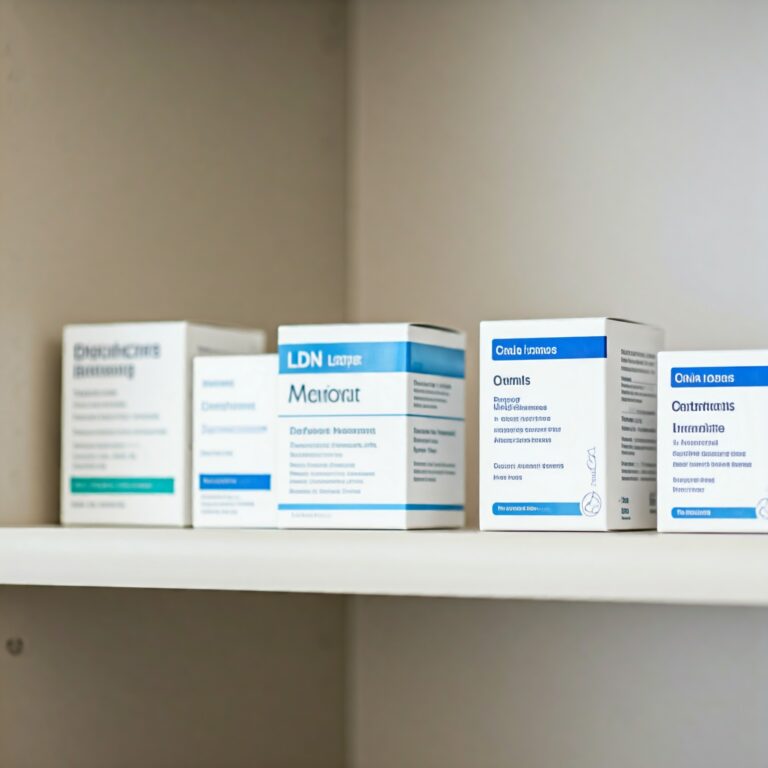Pain. Fatigue. Uncertainty. For those grappling with the daily challenges of Crohn’s disease, relief often feels elusive. Amidst the plethora of treatment options, one natural remedy has piqued interest: aloe vera. In this exploration, we delve deep into the potential of aloe vera in alleviating the symptoms of Crohn’s. From the promising biochemical pathways it traverses to the cautionary tales whispered by experts, we unravel the enigma surrounding aloe vera and Crohn’s.” Join us as we navigate the labyrinth of Crohn’s management, seeking solace amidst the chaos and uncertainty.
Living with Crohn’s disease is no walk in the park. As a fellow Crohn’s warrior, I understand firsthand the daily battles and hurdles that come with managing this chronic condition. While there’s no magic cure for Crohn’s, exploring alternative treatments and natural remedies can offer some relief amidst the struggle. One such remedy that’s been gaining attention in recent times is aloe vera.
Understanding the Mechanism: How Does Aloe Vera Alleviate Crohn’s Symptoms?
When it comes to soothing the symptoms of Crohn’s, aloe vera emerges as a promising contender. But how exactly does it work its magic within our complex gastrointestinal systems?
Aloe vera isn’t just your average houseplant; it’s a powerhouse of healing compounds. Dive deeper into its biochemistry, and you’ll discover potent elements like acemannan, which hold the key to gut health restoration. Moreover, aloe vera’s innate ability to modulate the immune response plays a pivotal role in taming the flames of inflammation characteristic of Crohn’s disease.
In addition to Crohn’s disease, aloe vera has been studied for its potential benefits in other forms of gut inflammation, such as ulcerative colitis and general IBD. Aforementioned compounds like acemannan and its anti-inflammatory properties show promise in soothing intestinal inflammation across these conditions
Aloe Vera for IBD and Ulcerative Colitis: Exploring the Benefits
While Crohn’s disease is a well-known form of IBD, aloe vera’s potential benefits extend to ulcerative colitis, another type of IBD. Aloe vera juice, in particular, has gained attention for its ability to reduce inflammation in the digestive tract. While more research is needed, some studies suggest that aloe vera may help manage symptoms of ulcerative colitis, including abdominal pain and diarrhoea.
Aloe Vera Dosage and Administration: Optimising Use for Crohn’s Management
Finding the sweet spot for aloe vera intake is crucial for reaping its full benefits in Crohn’s management. But how do you determine the right dosage amidst the sea of conflicting advice?
Here’s where a tailored approach comes into play. Factors like age, severity of symptoms, and individual tolerance levels all influence the optimal dosage of aloe vera. Whether you opt for the juice, gel, or supplements, understanding their nuances is key to harnessing their therapeutic potential to the fullest.
Potential Side Effects and Precautions: Safely Incorporating Aloe Vera into Crohn’s Treatment
While aloe vera holds promise as a natural remedy, it’s not without its share of caveats. Navigating potential side effects and precautions is paramount to ensuring a safe and seamless integration into your Crohn’s treatment plan.
From abdominal cramps to diarrhoea, being aware of the possible pitfalls is the first step towards mitigating them. Special considerations, such as allergies or pregnancy, warrant extra vigilance and consultation with healthcare professionals before diving in.
While aloe vera is generally well-tolerated, it’s important for individuals with IBD, including Crohn’s and ulcerative colitis, to consult with a healthcare professional before use. In some cases, aloe vera juice may cause gastrointestinal discomfort or diarrhoea, particularly if consumed in large quantities.
Aloe Vera in Complementary Therapies: Integrating with Traditional Crohn’s Treatments
In the realm of Crohn’s management, synergy is key. Discover how aloe vera complements conventional medications and therapies, paving the way for a holistic approach towards symptom alleviation.
Drawing insights from real-world case studies and clinical trials, we unravel the untapped potential of aloe vera in tandem with medications like corticosteroids or biologics. Embracing a comprehensive treatment strategy tailored to individual needs holds the promise of a brighter tomorrow for Crohn’s patients.
Navigating Product Selection: Choosing High-Quality Aloe Vera Products for Crohn’s Care
With a plethora of aloe vera products flooding the market, separating the wheat from the chaff is no easy feat. Learn how to navigate the maze of product selection to ensure you’re investing in quality and efficacy.
From purity to potency, we delve into the crucial criteria for vetting aloe vera products. Armed with knowledge and discernment, you can steer clear of counterfeit concoctions and embrace authenticity in your quest for relief.
For individuals with Crohn’s, IBD, or ulcerative colitis, choosing the right form of aloe vera—whether juice, gel, or supplements—can be crucial. Aloe vera juice, in particular, is often preferred for gut health and intestinal inflammation. However, always ensure the product is free from additives that may exacerbate symptoms.
Dr. Sunanda Kane’s Cautionary Advice
In the realm of Crohn’s management, it’s crucial to heed the advice of experts like Dr. Sunanda Kane, a distinguished gastroenterologist and professor at the prestigious Mayo Clinic. Dr. Kane echoes a note of caution when it comes to incorporating aloe vera into Crohn’s treatment plans.
With her wealth of experience and expertise, Dr. Kane underscores the importance of evidence-based practice. “I would not recommend using aloe vera products as first-line therapy for inflammatory bowel disease. There is not enough data to support that,” she warns, emphasising the need for robust scientific evidence to guide treatment decisions.
Dr. Kane’s prudent approach reminds us to tread carefully and prioritise safety and efficacy above all else. While aloe vera shows promise as a complementary therapy, it’s essential to exercise caution and consult with healthcare professionals before embarking on any new treatment journey.
Aloe Vera Myths and Misconceptions: Debunking Common Beliefs about Aloe Vera and Crohn’s
In the age of information overload, separating fact from fiction can be a daunting task. Join us as we debunk common myths surrounding aloe vera’s role in Crohn’s management, shedding light on the truth behind the hype.
While aloe vera boasts undeniable benefits, it’s no miracle cure for Crohn’s disease. By dispelling misconceptions and setting realistic expectations, we empower patients to make informed decisions on their journey towards wellness.
Aloe Vera Cultivation and Sustainability: Ethical Considerations in Aloe Vera Production
Beyond its medicinal prowess, aloe vera cultivation carries profound implications for our planet and its inhabitants. Explore the ethical dimensions of aloe vera production, from environmental stewardship to social responsibility.
From farm to table, we unravel the intricate web of sustainability within the aloe vera industry. By championing ethical practices and supporting fair trade initiatives, we pave the way for a greener, more equitable future.
Aloe Vera Recipes and Culinary Tips: Incorporating Aloe Vera into Crohn’s-Friendly Diet Plans
Who says healing can’t be delicious? Discover inventive ways to incorporate aloe vera into your culinary repertoire, transforming mundane meals into gastronomic delights brimming with nutritional goodness.
From refreshing smoothies to hearty salads, our tantalising recipes promise to tantalise your taste buds while nourishing your body from the inside out. Say goodbye to bland diets and hello to aloe-infused culinary adventures!
Aloe Vera Smoothie Benefits and Recipes for Gut Health
Incorporating aloe vera into smoothies is a tasty and effective way to support gut health. Aloe vera smoothie recipes are becoming popular, not just for their refreshing taste but for their potential to reduce inflammation and support digestion in those with Crohn’s, IBD, or general gut inflammation.

Aloe Vera Research and Future Directions: Advancing Scientific Understanding of Aloe Vera’s Therapeutic Potential
As the scientific community delves deeper into the mysteries of aloe vera, exciting prospects for future research emerge on the horizon. Join us as we explore groundbreaking studies and cutting-edge innovations in the realm of aloe vera therapeutics.
From nanotechnology to targeted drug delivery systems, the possibilities are limitless. By fostering collaboration and curiosity, we pave the way for transformative breakthroughs in Crohn’s disease management.
Aloe Vera Lifestyle Tips and Self-Care Practices: Enhancing Wellbeing Beyond Crohn’s Symptom Management
Managing Crohn’s disease goes beyond mere symptom suppression; it’s about embracing a holistic approach to wellbeing that nurtures body, mind, and soul. Discover practical lifestyle tips and self-care practices to elevate your quality of life and reclaim your vitality.
From stress-busting strategies to mindful living principles, we empower you to take charge of your health and happiness. Together, we can navigate the ups and downs of life with Crohn’s disease and emerge stronger, wiser, and more resilient than ever before.
In conclusion, while aloe vera holds promise as a complementary therapy for Crohn’s disease, it’s essential to approach it with caution and discernment. By arming yourself with knowledge and seeking guidance from trusted healthcare professionals, you can embark on a journey towards holistic healing and wellbeing. Remember, you’re not alone in this fight – we’re in it together, every step of the way.
Frequently Asked Questions Relations to Aloe Vera For Crohn’s Disease
Some studies suggest that aloe vera possesses anti-inflammatory properties, which may potentially help alleviate gut inflammation in Crohn’s disease. However, its effectiveness varies among individuals, and more research is needed to confirm its benefits conclusively.
While aloe vera juice is often touted for its soothing properties, its ability to heal intestines affected by Crohn’s disease is not definitively established. It’s advisable to approach its usage cautiously and consult with a healthcare professional for personalised guidance.
Aloe vera may offer some relief for certain symptoms associated with Crohn’s disease due to its potential anti-inflammatory effects. However, its efficacy and safety for managing this condition require further investigation. It’s essential to seek medical advice before incorporating it into your treatment regimen.
Aloe vera can be consumed orally as juice or supplements or applied topically in gel form. While it may possess anti-inflammatory properties, its suitability for individuals with Crohn’s disease should be discussed with a healthcare provider to ensure safe and appropriate usage.
While aloe vera is generally considered safe for topical use, its oral consumption may not be suitable for everyone, especially those with gastrointestinal conditions like Crohn’s disease. It’s crucial to exercise caution and consult with a healthcare professional before using aloe vera as part of your treatment plan.
Aloe vera juice may help reduce inflammation in the digestive tract, making it a potential complementary therapy for IBD symptoms, including ulcerative colitis. However, it’s crucial to consult with a healthcare provider to ensure safe usage.





